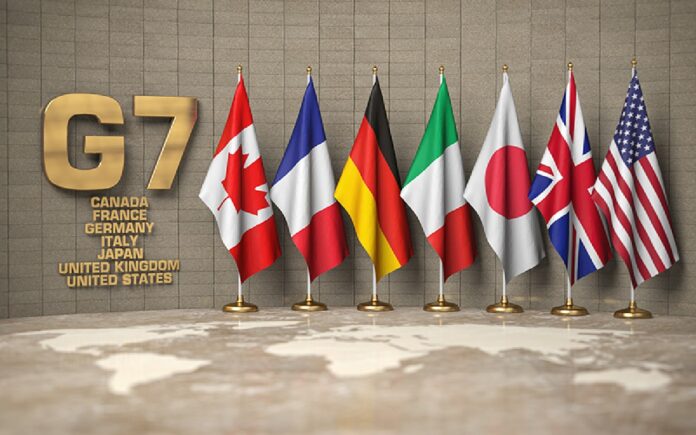Rome: According to an Italian Treasury official, finance ministers from the Group of Seven (G7) nations, convening in Italy next week, will throw their weight behind a European Union proposal to utilize income from frozen Russian assets to bolster Ukraine’s war effort.
Italy, currently holding the G7 presidency, aims to rekindle international consensus on redistributing tax rights for major corporations—an initiative the United States has struggled to ratify in Congress. The G7 includes the United States, Japan, Germany, France, the United Kingdom, Italy, and Canada.
Following Moscow’s aggression towards Ukraine in February 2022, the G7 collectively froze approximately $300 billion in financial assets. Since then, discussions have revolved around leveraging these funds to assist Ukraine, with differing opinions between Europe and the United States on how to proceed.
Also Read | Russian Forces Advance Towards Ukrainian Village Near Kharkiv, Reports RIA
While the U.S. favors seizing the assets outright, European nations are cautious, citing concerns over potential impacts on the euro and legal complexities.
The G7 is poised to endorse the EU’s approach of utilizing the generated income from the frozen assets for Ukraine’s benefit, emphasizing the need for a robust legal framework and EU support.
Also Read | Italy’s League Pushes to Remove EU Flag from Public Offices
Contrary to U.S. proposals, which advocate using the assets as loan collateral for Ukraine, European resistance has prompted a focus on utilizing asset income rather than the assets themselves.
The groundwork laid by finance ministers during the Stresa meeting on May 24-25 will pave the way for G7 leaders to make a final decision at a summit in Puglia, Italy, in June.
Also Read | Russia Retaliates: UK Defense Attaché Expelled in Escalating Diplomatic Spat
Although not formally on the agenda, discussions in Stresa will touch upon trade relations with China, particularly in light of recent U.S. tariff hikes on Chinese imports. Italy, however, harbors concerns over the disruptive impact of tariffs on global trade.
As the deadline for the digital services taxes trade truce approaches in June, Italy aims to facilitate talks to salvage plans for a global minimum tax on multinational corporations. Progress on negotiations regarding the reallocation of tax rights on corporate profits remains stagnant ahead of next week’s meeting.



